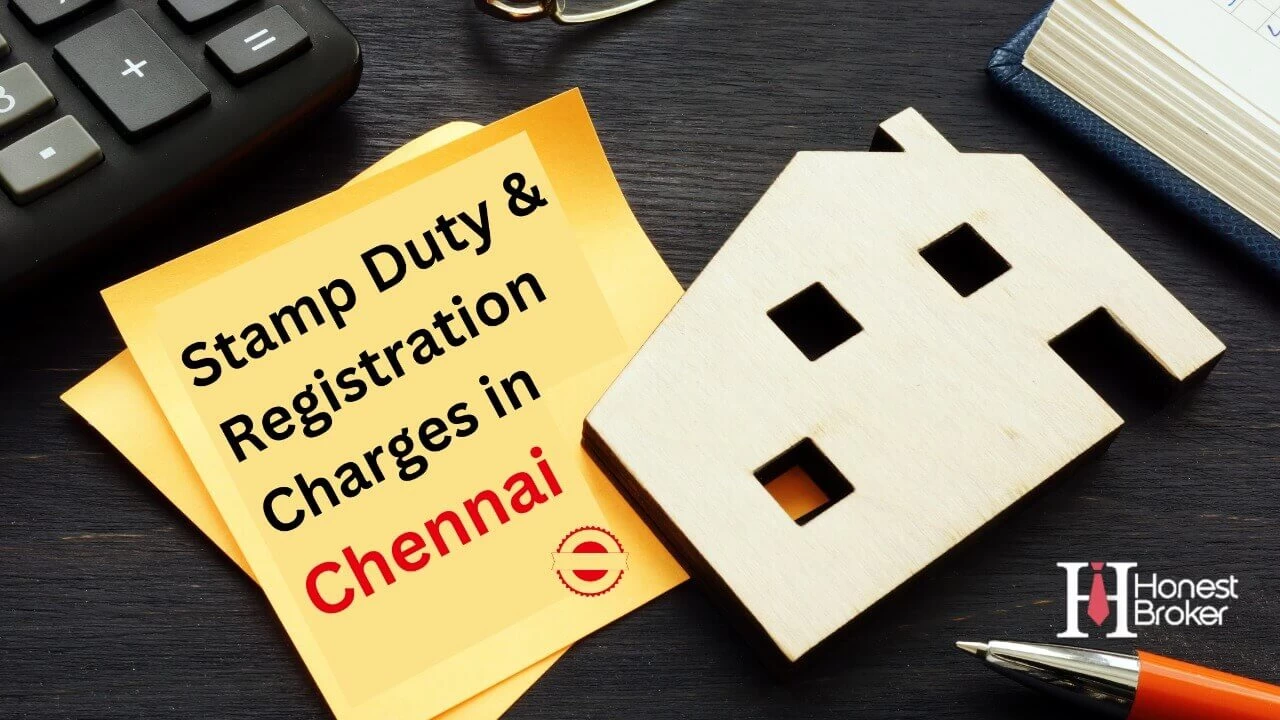 Blog
Blog
Current Financial Year Stamp Duty for Chennai
Even though you may have successfully purchased your ideal house in Chennai, your journey is far from over. Even though you may physically hold the property, you are not necessarily its owner. By paying the stamp duty and registration charges in Chennai on the property, various legal documents that clearly state the ownership of the property may be obtained.
As explained, stamp duty in Chennai is an amount that the buyer must fully pay within the allotted time. It is essentially a property tax. As legal proof that the buyer bought the property, it functions similarly to how the government collects income or service taxes. The property will be formally registered in the buyer's name after paying the stamp duty and property registration fees. The buyer will incur severe fines, and the property's value will decrease if they don't.
Following the payment of the stamp duty in Chennai, the property must be registered at the Sub-Registrar's office of the country where it was purchased. According to the Registration Act of 1908, registering the property is required. Any claim to ownership of the property won't be recognized unless it's registered.
When the buyer buys the land and has it registered in their name, there are land registration charges in Chennai. The charge is equal to 1% of the property's value.
Stamp Duty in Chennai and Registration in Chennai are mentioned below:
Methods of Paying Stamp Duties in Chennai
The following procedures must be followed to register a property in Chennai successfully:
A thorough Inspection of the Property: Before signing a property sale contract or negotiating a price, it is wise to carefully inspect the property and conduct your due diligence with a lawyer with experience in real estate transactions.
Sale Deed Preparation: After performing due diligence, the sale agreement needs to be written. It must be written on stamp paper, and the fees for registering the property must determine the cost. Both licensed document writers and advocates can prepare it.
Registration of the Property: Within four months of the sale agreement's execution, the property in Chennai must be registered. Therefore, after buying the property, the next step is to pay the Chennai stamp duty and the necessary plot registration charges in Chennai. The property needs to be registered with the Registrar/Sub-Registrar's office of the area where it was bought.
Related Information Cost Of Living In Chennai
How can we calculate stamp duty for different types of Properties?
The value of the property is used to determine stamp duty. Each state in India has its unique set of supporting factors used in the calculation. It is often paid according to the concept of the circle rate that the government chooses. Stamp duty also varies depending on the property's use, such as whether it is residential or commercial or in an urban or rural region.
You can pay stamp duty in Chennai for the new property you're about to purchase in three different ways. You may consider paying the duty using non-judicial stamp paper, e-stamping, or franking, in which case you pay the duty through a bank or franking agency that is permitted to accept such payments. The state where you are acquiring the property supports some additional fees associated with franking. Here are some details provided for how to calculate stamp duty.
The calculation of stamp duty fees also takes into account several additional elements. The key details are
● A property's status (new or old)
● Real estate space (metropolitan, rural, suburban, etc.)
● Place of the property (even within a state, the charges can vary between cities and locations)
● Owner's age (some states have discounts for senior citizens)
● Owner's sex (some states offer a concession to female owners)
● Use of the property (commercial or residential)
● Property kind (independent house or flat)
Any Tax benefits on Stamp Duty from the Government
A home buyer may be eligible for a rebate on the principle of his home loan and the sum paid for stamp duty and registration fees under Section 80C of the Income Tax Act. The cap is only set at Rs 1.50 lakhs each year, though. Rebates are available for various investments under Section 80C, including PF, PPF, life insurance, home loan principal, etc. However, the buyer must demonstrate that he paid the stamp duty and registration fees out of his own money to be eligible for the benefit. The rebate will not be given if the money is taken out on loan from another source. Keep in mind that stamp duty is non-refundable.
Related Information How to Pay Property Tax in Chennai
How can I Pay Stamp Duty in Chennai Online?
Also available online in Tamil Nadu are stamp duty for houses and registration charges in Chennai. An electronic stamping service offered by the central record-keeping organization Stock Holding Corporation of India Limited (SHCIL) can be used for this procedure (CRA). To create e-stamp certifications, the Indian government has designated this organization.
Here are the actions that you must take to complete the following:
Step 1: Visit the official SHCIL website.
Step 2: Select "e-stamp services"
Step 3: From the drop-down option, pick Tamil Nadu.
Step 4: Complete the application form and select the Download button.
Step 5: A customer must take this form to the nearby SHCIL branch in any city in Tamil Nadu.
Step 6: Payments can be made at the branch via NEFT, RTGS, Cheques, Cash, Demand Drafts, or Account Transfers.
Summary
If you fail to pay stamp duty or other applicable fees at the moment that your newly purchased property is registered, you risk facing significant fines. You might also be the target of a lawsuit in specific circumstances. As a result, you must prepare properly for this so that everything runs well. Because depending on the value of your property, these fees might reach many thousands or even crores of rupees.
FAQ’s
Q. How are registration fees and stamp duty computed in Chennai?
The property's market value is used to determine the stamp duty and registration fees in Chennai.
Q. What are the registration fees and stamp duty in Chennai?
The stamp duty rate in Chennai is 7% of the property's market value. In contrast, a metropolitan city's property registration fee is 1% of the property's worth.
Q. How is stamp duty determined in Tamil Nadu?
The property's market value or consideration value, whichever is higher, is used to determine stamp duty. The fee will therefore be 7% of the property's value, which is Rs. 60 lakh.
Q. How are registration fees for real estate defined?
Based on the property's market value, the registration fees are determined. If the property is worth Rs. 50 lakh, the registration price is 1% of that amount.
Q. Should I go to the Sub Registrar's Office?
Once you have paid the stamp duty, you must go to the sub-office registrar to register the property.
Q. What do stamp duty and registration fees under 80 C mean?
Section 80C allows a maximum benefit of Rs. 1,50,000 for stamp duty and registration expenses. If there are joint owners, each owner may claim the tax benefit on these costs up to the number of their respective property shares, but at most Rs. 1,50,000.





